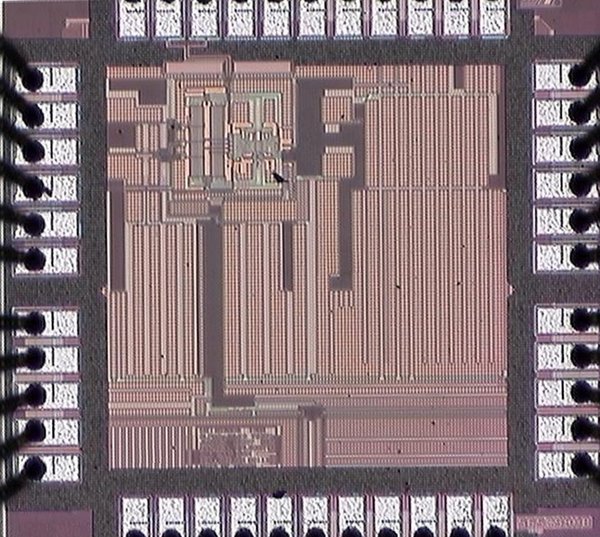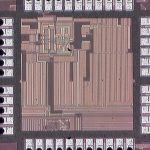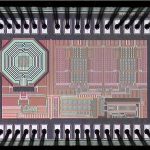
In the last 3 centuries humanity has evolved throughout time based in 3 Industrial Revolutions, each one of them powered by a key motor, the 1st initiated with the Steam Engine (James Watt-1763), followed by the 2nd started with the inventions of Electrical Power Generation (Michael Faraday-1831) and the Combustion Engine (Siegfried Marcus-1864), until the 3rd kicked-off with the discovery of the Transistor (John Bardeen, Walter Brattain and William Shockley-1947) that really marked the commencement of what is now known as the Information Technology Revolution, led by continuous and fast developments in Electronics, Computing and Telecommunications. Current state-of-the-art and most well-known information technology platforms and gadgets are, the internet, the mobile phone, the personal computer, the video game console, the media player, the global positioning system (GPS), all of which having at their core electronic microchips. Every year in February the world-showcase for electronic microchips happens in San Francisco, and it is designated as the International Solid-State Circuits Conference – ISSCC, where the most advanced state-of-the-art circuits are presented by the top companies, in particular Intel, Sun Microsystems, Analog Devices, NEC, IBM, Texas Instruments, Samsung Electronics, Qualcomm, ST-Ericsson, Toshiba, Broadcom, Nokia, TSMC, and top universities, like MIT, Stanford U, University of Tokyo, National Taiwan University, UCLA, UC Berkeley, ETH Zurich, among others. ISSCC is co-organized by the Institute of Electrical and Electronics Engineers (IEEE) and its Solid-State Circuits Society (SSCS). The conference applies a strict standard in selecting papers that must contain forcibly prototype chip results, taking half from industries and the other half from universities, with merely 30 percent acceptance rate from among the most advanced chips designed in the front-line of CMOS nanotechnology. Recently, it was known that UM through the research results of its Analog and Mixed-Signal VLSI Laboratory - AVLSI Lab had 2 of its state-of-the-art chips accepted for presentation in ISSCC 2011, in February, in San Francisco. These chips, described in 2 technical papers, contained a Receiver Front-End for a Full-Band Mobile TV and a 400MS/s Analog-to-Digital Converter for Radar and Satellite Communication Systems, both designed in advanced 65nm CMOS technology, with this one receiving additionally the Silk-Road Award for a Ph.D. student in an emerging country, from Asia, Australia and the Pacific. With this result when benchmarked with top universities in the world UM will be placed in the top 15 that comprises the National Taiwan University, KAIST (from South Korea), University of Tokyo, CMU, MIT, University of Twente (The Netherlands), etc. And, among the top 5 universities in China that ever presented their chips results at ISSCC, namely, together with HKUST, Fudan University, Tsinghua University and Chinese University of Hong Kong. This important achievement by the AVLSI Lab of UM comes at a crucial moment of its life when a proposal for the elevation to the National status of State-Key Lab Partner Lab, submitted through the Macao Science and Technology Development Fund (FDCT) is under top-level scrutiny in the country by the Ministry of Science and Technology (MoST), from the Chinese Government. Within this scope, UM and AVLSI Lab were visited in October 25 by Vice-Minister Dr. Jianlin Cao that witnessed in loco the above mentioned results through the observation of the chips designed, by the laboratory researchers, under a testing environment. Vice-Minister Dr. Jianlin Cao has also attended a presentation by UM Rector, Prof. Wei Zhao, that exhibited the latest developments in the university, in particular the fast development of research through the growing number of publications and citations in top journals and conferences, as indexed by the world-top ISI – Web of Science, as well as the New Campus Project, in Hengqin Island. Furthermore, the Vice-Minister visited also the Institute of Chinese Medical Sciences (ICMS) that is also under evaluation for the elevation to State Key Lab Partner Lab in the Chinese Medical Sciences area in a local partnership with MUST. In the end, Vice-Minister Jianlin Cao mentioned that his visit was quite positive allowing him to know better the current level of development of both laboratories, being also very useful for the final decision that will be taken soon.
View gallery


